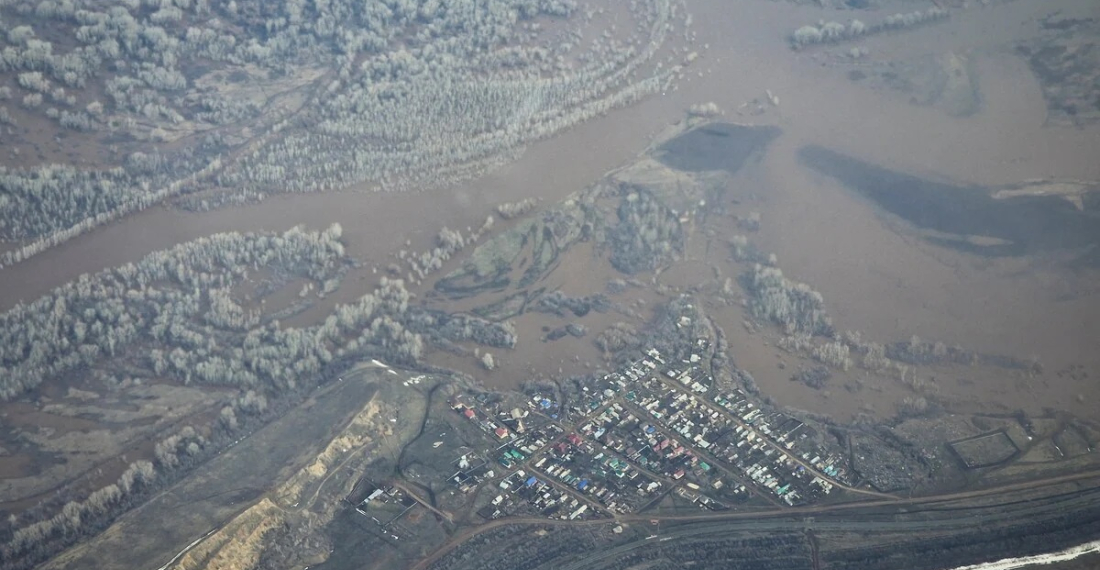Kazakhstan has for nearly two weeks been grappling with the worst flooding in living memory after very large snow falls melted swiftly amid heavy rain over land already waterlogged before winter. Swathes of northern Kazakhstan were flooded again on Monday (15 April) as melt waters swelled the tributaries of the world's seventh longest river system, forcing more than 125,000 people to flee their homes. This is Kazakhstan's largest natural disaster in living memory.
Since the onset of the flooding, 111,194 people have been rescued and evacuated, with 39,222 of them being children, reported the Ministry of Emergency Situations on April 15.
Kazakh President, Kassym-Jomart Tokayev, addressed the nation on April 6 amid the devastating floods that wreaked havoc across the country’s regions, leaving hundreds homeless, and criticism that his government had not done enough quickly enough to support the thousands affected. “Perhaps it is the biggest disaster in terms of its scale and consequences for the last 80 years,” he said in his nearly 15-minute address.
In his televised speech Tokayev said that a state of emergency was declared in 10 regions of Kazakhstan.
Hinting at the slow response by government agencies Tokayev said: “Following my criticism, the government has ramped up efforts to mitigate the impacts of flooding and took appropriate measures”. He said that all rescue work on the ground was now under his personal control.
Tokayev reiterated the main task is to prevent human casualties, while pledging full support to those affected.
“Addressing the citizens affected by the flood, I want to declare: none of you will be left without the state’s attention. Financial and other necessary assistance will be provided to all of you, and all your material losses will be compensated,” he said.
President Tokayev tasked the Ministry of Defence with sending additional military units to address the disaster and the government with unsealing the state material reserve to assist those affected. Financial aid should also be provided, said Tokayev.
“The government must also quickly develop an effective mechanism for compensating damage and explain it to all the affected. The amounts should be proportional to the damage incurred,” he noted.
Recognizing the broader implications of the floods, the President touched on the need for enhanced national preparedness against extreme weather events.
“We must learn all the lessons from these massive floods. There are many, starting from the shortcomings in the organizational measures to prevent natural disasters, the shortage of skilled personnel in water management, and ending with our negligent attitude towards nature,” said Tokayev.
Kazakhstan cancels its landmark Astana Forum to concentrate on dealing with the flooding disaster
In an unprecedented move, seen as an admission of the seriousness of the flooding crisis, the Kazakh government this week cancelled the Astana International Forum (AIF) scheduled for June 13-14, 2024. The forum is a prestige national event for Kazakhstan that annually convenes world and business leaders to engage in dialogue on pressing issues and seek new opportunities for collaboration. In 2023, it gathered over 5,000 participants from more than 50 countries in Astana.
.“Due to the severe flooding in Kazakhstan and the need to allocate financial resources for relief efforts and aid for affected citizens, I have made the decision to cancel the Astana International Forum that was scheduled for June 13-14 this year,” wrote Tokayev in his X account.
President Tokayev expressed his hopes for the understanding of the invited participants and confirmed the event will come back in 2025.
source: commonspace.eu with Reuters (London) Astana Times (Astana) and agencies
photo: aerial shot of flooding in Kazakhstan







